Lonetree Farm, in rural Stockton, Illinois, gets busy this time of year with NIPE’s prairie seed mixes. Staff and volunteers spend hours picking native plant seeds from area prairies and savannas, separating seeds from the rest of the plant, drying seeds, and then sorting into their proper mixes for seeding and overseeding elsewhere.
Earlier this fall, NIPE received two and a half large lawn bags of common milkweed (Asclepias syriaca) to help with these efforts. This is the milkweed that is so important to the Monarch butterfly life cycle. To use the seed in NIPE’s prairie seed mixes, it must be removed from the pods and de-fluffed. Paid staff and volunteers spent a total of 55 hours at Lonetree cleaning three wheelbarrows full of pods. The result was a little over eight pounds of clean seed.
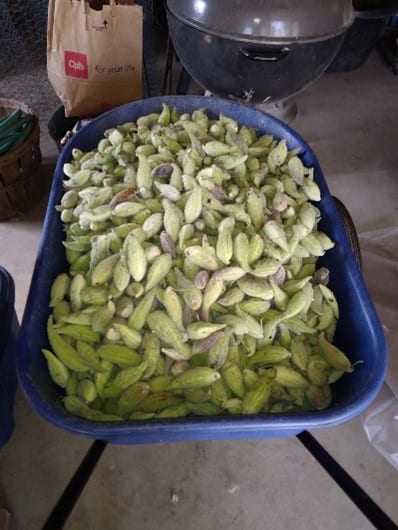
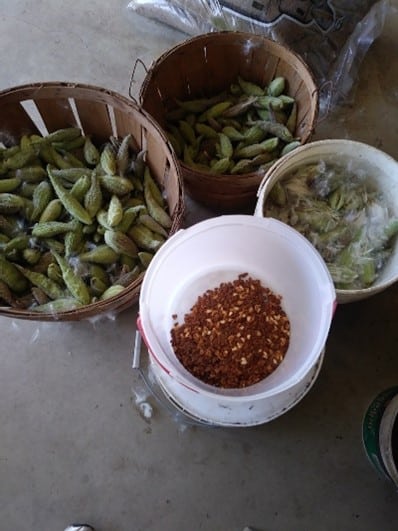
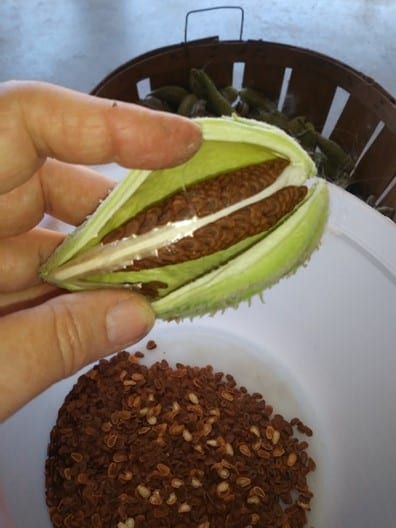
(Photos of the Asclepias de-fluffing project: from wheelbarrows full of seed pods to de-fluffing to clean seed. Photos by Rickie Rachuy.)
In late September, NIPE’s Jim and Rickie Rachuy gave members of the Lake Carroll (Illinois) Prairie Club a tour of the rare plant gardens at Lonetree Farm. The tour also included time spent in the seed shed and greenhouse (currently housing more prairie plant seeds awaiting milling and bagging). Club members were allowed to process a few of their own collected seeds on the hammer mill in the seed shed.
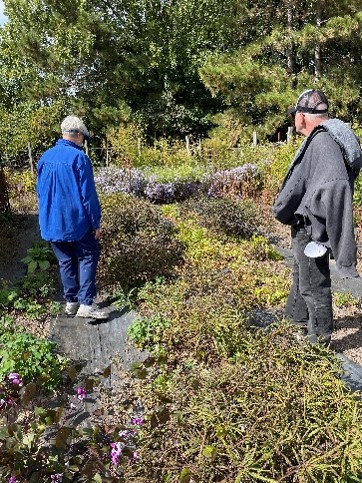
In the Rare Plant Gardens at Lonetree Farm (photo by Pam Richards)
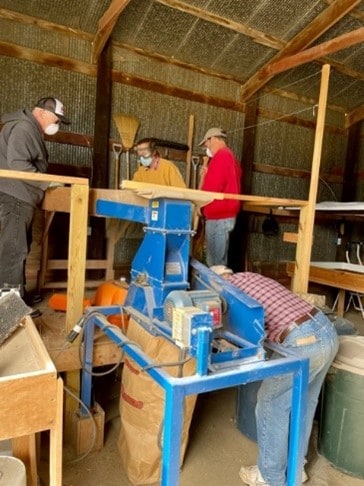
Working the Hammer Mill (photo by Pam Richards)
